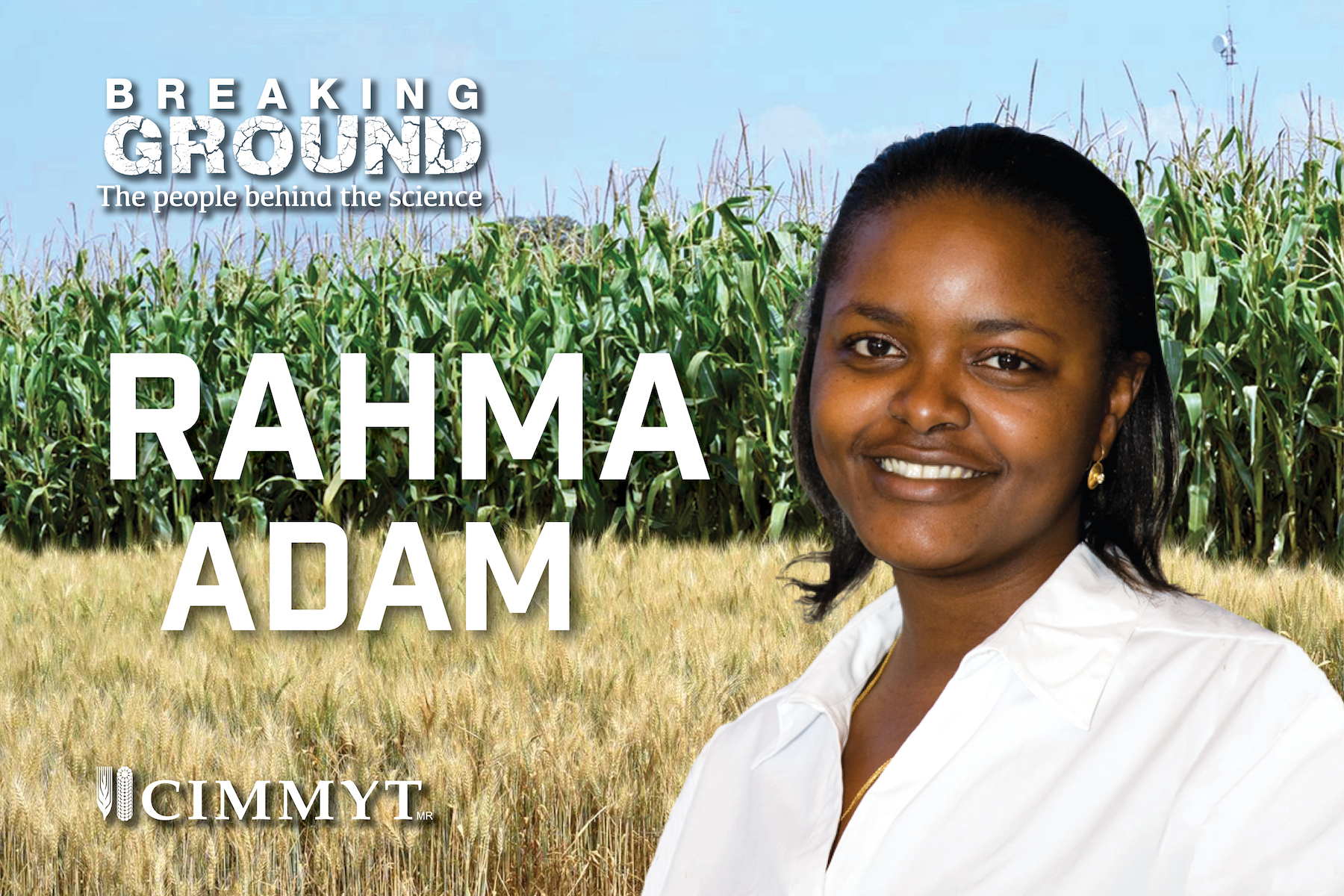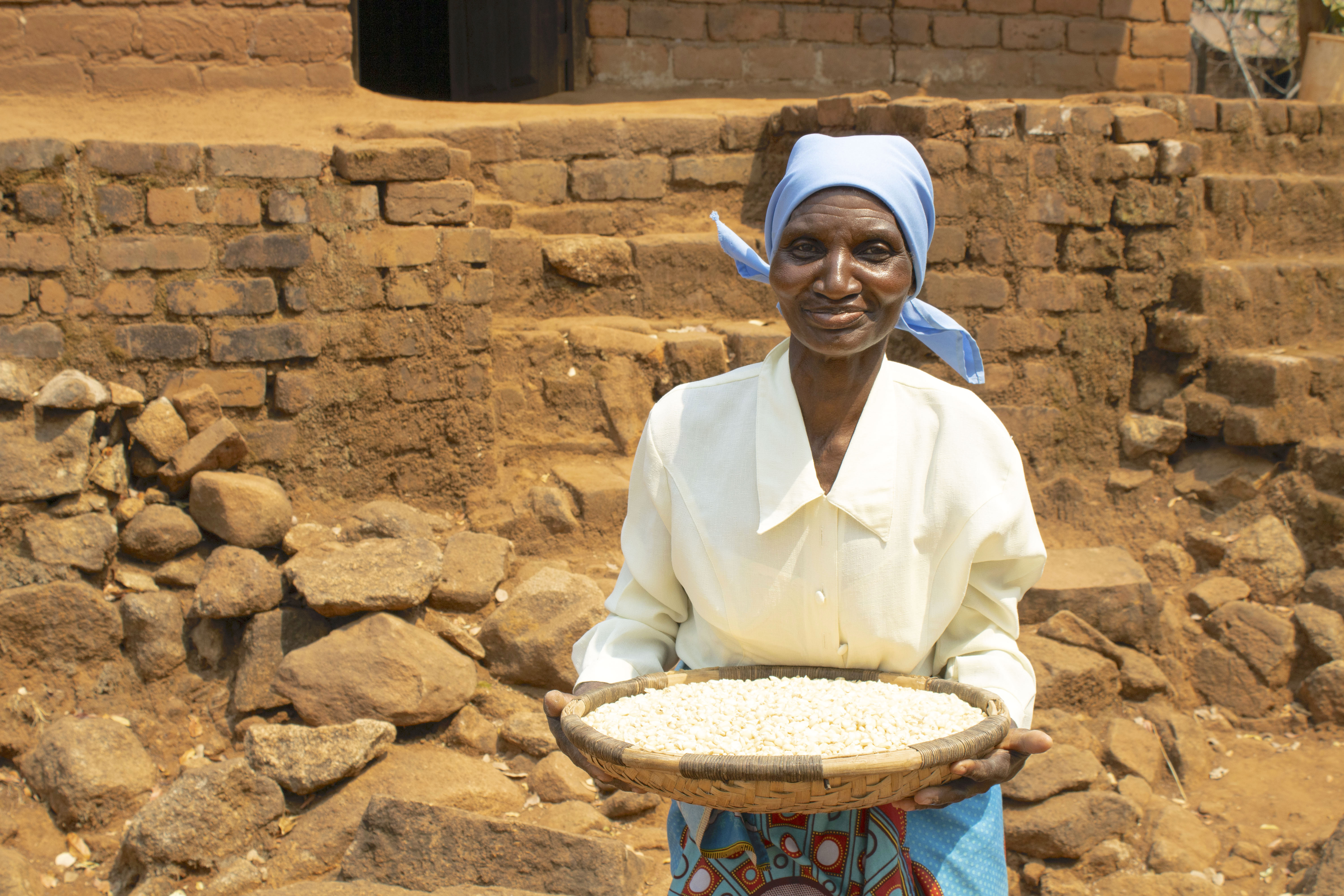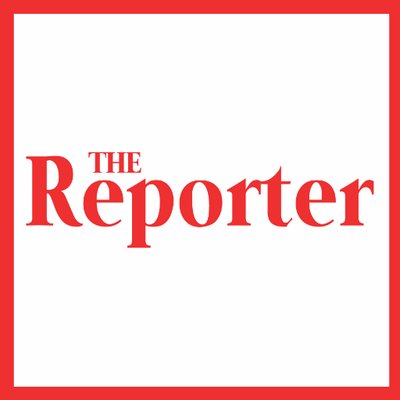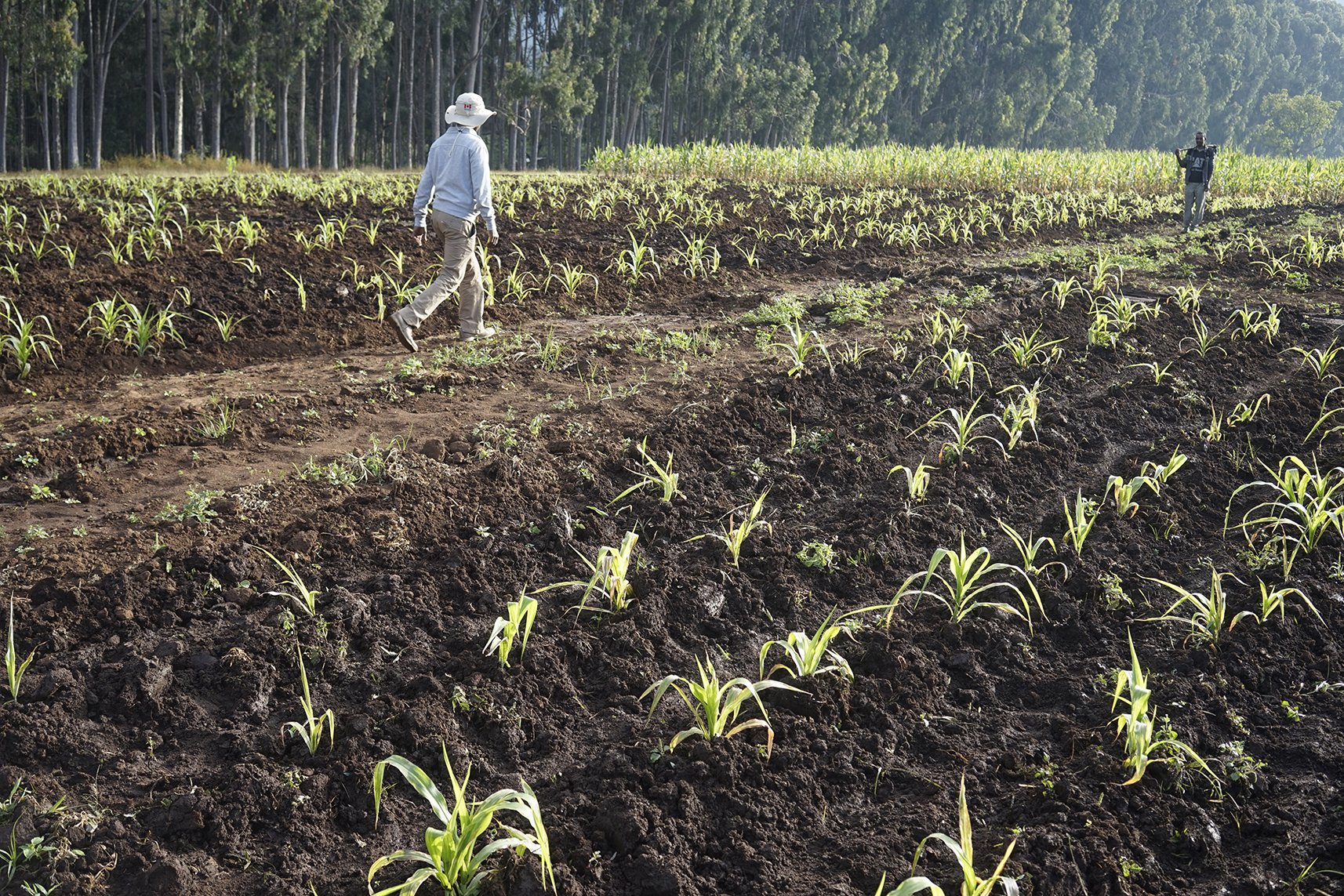
Despite great innovations in African agriculture in recent years, much of the continent still struggles to feed itself. With the population growing at an unprecedented rate, avoiding fatal food insecurity lies in the ability to maximize agricultural capacity.
Sociologist Rahma Adam believes there is one vital resource that remains untapped. One which, when unleashed, will not only increase food security but also boost livelihoods: the human capital of Africa’s women and youth.
“Smallholder production and livelihoods are stifled by the unequal access woman and youth have to farming information and resources, compared to men,” said Adam. “Limited access to land and technical services inhibits their agricultural productivity and holds back the food security of all.”
As a gender and development specialist with the International Maize and Wheat Improvement Center (CIMMYT), Adam adds a social inclusion lens to Africa’s development dialogue. Her research asks questions as to why women and youth are overrepresented among the poor and how to improve their access to agricultural training and markets.
The interaction between biology and anthropology has fascinated Adam since she was an undergraduate student at Macalester College. However, it was not until researching women and men in the local food markets of her native Dar es Salaam, Tanzania — as part of an exercise for her master’s degree in Public Policy at Harvard University — that she realized how social equity could improve the livelihoods of all African farmers.
“Working alongside farming women, I saw first-hand the disproportionate number of challenges they face to overcome poverty, gather finance for inputs, produce enough food to sustain a family and improve their livelihoods. However, I also saw their potential,” Adam explained.
Inspired to tackle these complex issues, she got her doctoral degree in rural sociology, with a focus on agriculture, gender and international development, from Pennsylvania State University. Following an early career with nonprofits and the World Bank, she joined CIMMYT as a gender and development specialist in 2015.
Since then, Adam has led research on how best to lift the agricultural productivity of women and youth to its full potential. Working with the Sustainable Intensification for Maize-Legumes Cropping Systems for Food Security in Eastern and Southern Africa (SIMLESA) project, she analyzed the role of gender and social inclusion in maize and legume value chains in Ethiopia, Kenya, Mozambique and Tanzania. She also identified intervention points to achieve gender and age equity across various nodes from field to plate, for example among producers, agrodealers, traders, processors and breeders.
“Promoting women and youth participation in agricultural value chains improves food security and livelihoods,” she explained. “Allowing these groups to have a voice and encouraging their leadership in farmer groups promotes their participation in agriculture.”
Partnerships for social inclusion
In eastern and southern Africa’s maize and legume farming systems, research shows that in most cases men have the final decision over maize crop production. Women have increased decision-making power regarding certain legumes, such as cowpeas and groundnuts, as they are mostly only for household consumption.
Adam’s work with SIMLESA found that promoting women’s participation in the production of legumes as cash crops is an opportunity to empower them, increase their household income and their food security.
Connecting women and youth to value chains through Agricultural Innovation Platforms improves their access to markets, credit, farming information and capacity development, she said. These platforms bring together farmers with extension workers, researchers, agrodealers, and NGO practitioners, so they can work together to improve maize and legume conservation agriculture-based sustainable intensification.
“It is important policy and development decision makers see that research demonstrates entry points to encourage women and youth to take an active role in value chains and improve productivity,” Adam said.
“You don’t want your research to sit on a shelf. This is why science policy dialogues — like the SIMLESA local, national and regional policy forums taking place this year — are important to ensure that research is introduced into the political landscape.”
An inclusive approach to research
Research must be designed and implemented in a way that women and men, including youth, can participate in and benefit from, Adam explained. They need to be considered in the research process, so they can increase their control of productive assets, participate in decision making, and decrease their labor burdens.
Adam has recently joined CIMMYT’s Stress Tolerant Maize for Africa (STMA) project to unpack gender issues in the formal maize seed sector. She will examine the relationship between gender and adoption of drought-tolerant and other improved varieties of maize. Adam will also analyze and categorize the differences in maize trait preferences between male and female farmers, and she will develop materials to integrate gender considerations in formal maize seed sector development.
“This information will be used by breeders to develop new maize varieties which are valuable to farmers and therefore have an increased chance of adoption,” the sociologist explained. “It will also help stakeholders get an idea of the rate men and women adopt improved varieties, and how they contribute to the evolution and performance of the seed sector in eastern and southern Africa.”
Providing training and consultation to her peers on gender and social inclusion is another important component of Adam’s work at CIMMYT. In June she will deliver a webinar on gender in research for CGIAR centers. At the end of the year she will participate in a regional seed sector workshop with other CGIAR experts, seed companies and NGOs, to ensure that partners use gender and social inclusion research.
Funded by the Australian Centre for International Agricultural Research (ACIAR), the SIMLESA project was led by the International Maize and Wheat Improvement Center (CIMMYT) in collaboration with the Rwanda Agricultural Board (RAB), CGIAR centers and national agricultural research institutes in Ethiopia, Kenya, Malawi, Mozambique, Tanzania and Uganda. Other regional and international partners include the Queensland Alliance for Agriculture and Food Innovation (QAAFI) at the University of Queensland, Australia, and the Association for Strengthening Agricultural Research in Eastern and Central Africa (ASARECA).
STMA is implemented by CIMMYT and is funded by the Bill & Melinda Gates Foundation and the United States of Agency for International Development (USAID).

 Gender equality, youth and social inclusion
Gender equality, youth and social inclusion 


